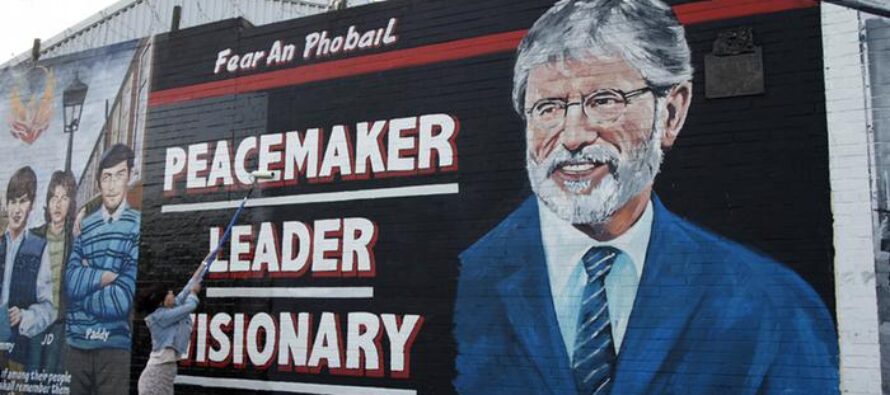Tory Human Rights plan ‘would wreck peace deal’

![]()
The new British government has already launched an ultra-conservative political agenda that could unravel the peace process in the north of Ireland.
Among the radical announcements expected to be made shortly are plans to scrap the 1998 Human Rights Act, which underpins a key aspect of the 1998 Good Friday peace Agreement.
The Belfast peace deal included a measure that Britain integrate the European Convention of Human Rights into law in the Six Counties, a process that was included in the Human Rights Act.
Part of the Good Friday Agreement was meant to ensure that European standards on human rights would transfer directly to the north of Ireland, and since 1998 all legislation created by the Stormont Assembly must be compatible with European law.
The scrapping of the act featured in the Conservatives manifesto and is now expected to be included in the Queen’s Speech, a statement of future policy, on 28th May, alongside laws to further curb free speech.
The move had been opposed by Cameron’s former coalition partners, the Liberal Democrats, but the results of last week’s election means they are no longer part of the equation and the Tory agenda can be forced through Westminster by the narrow Conservative majority.
‘COLLOSAL BLOW’
Nationalists have warned the move could spell “chaos” for the north of Ireland and have a deep impact on the Stormont setup.
SDLP justice spokesman Alban Maginness expressed concern that unionists might seek to exploit any change in the law to change the legislation on sectarian parades to create a ‘right to parade’.
“As we approach the marching season we should take note of the fact that all Parades Commission determinations are subject to the European Convention on Human Rights as interpreted through the Human Rights Act,” said Mr Maginness.
Civil liberties and human rights organisations such as the Committee for the Administration of Justice and Amnsety have warned against the move.
The Committee on the Administration of Justice (CAJ), which has been highlighting human rights abuses in Ireland for decades, said that if the Tories forced Britain out of Europe’s human rights code it would shatter confidence over policing reform.
“The European [convention on human rights] is absolutely vital in the day-to-day governance of Northern Ireland – to withdraw from it would be a colossal blow to the peace process,” said Brian Gormally, the CAJ’s director,
Sinn Fein’s Gerry Adams called it a “scandalous attack” on the peace deal. He said repealing the act would be a “grievous breach of the Good Friday Agreement” and would have “enormous” implications for the administration of government, justice, policing, and equality. He called on the 26-County prime minister to raise the matter with David Cameron.
In response, the 26 County Foreign Affairs Minister Charlie Flanagan said the protection of human rights was a key principle underpinning the 1998 peace agreement. “As a guarantor of the Good Friday Agreement, the Irish Government takes very seriously our responsibility to safeguard the Agreement,” he said.
He said he would raise it with the British Direct Ruler, Theresa Villiers. But Villiers immediately defended the plan and said British courts would “continue to protect fundamental rights enshrined in the European Convention”.
Related Articles
LIBERTA’ E PAESE BASCO – Iñaki Egaña
![]()
Sabato scorso assistetti emozionato al passaggio della maggior manifestazione alla quale ho partecipato nella mia vita. Probabilmente la maggiore e
IL CINICO GIOCO DELLE “COINCIDENZE”
![]()
In questi mesi abbiamo scritto delle “coincidenze” tra manifestazioni o iniziative della sinistra indipendentista basca con arresti di presunti militanti
NUOVI ARRESTI PRESUNTI MILITANTI ETA
![]()
Oggi sono state arrestate due persone accusate di essere militanti di ETA, dalla polizia autonoma catalana, Mosos de Esquadra, nella


